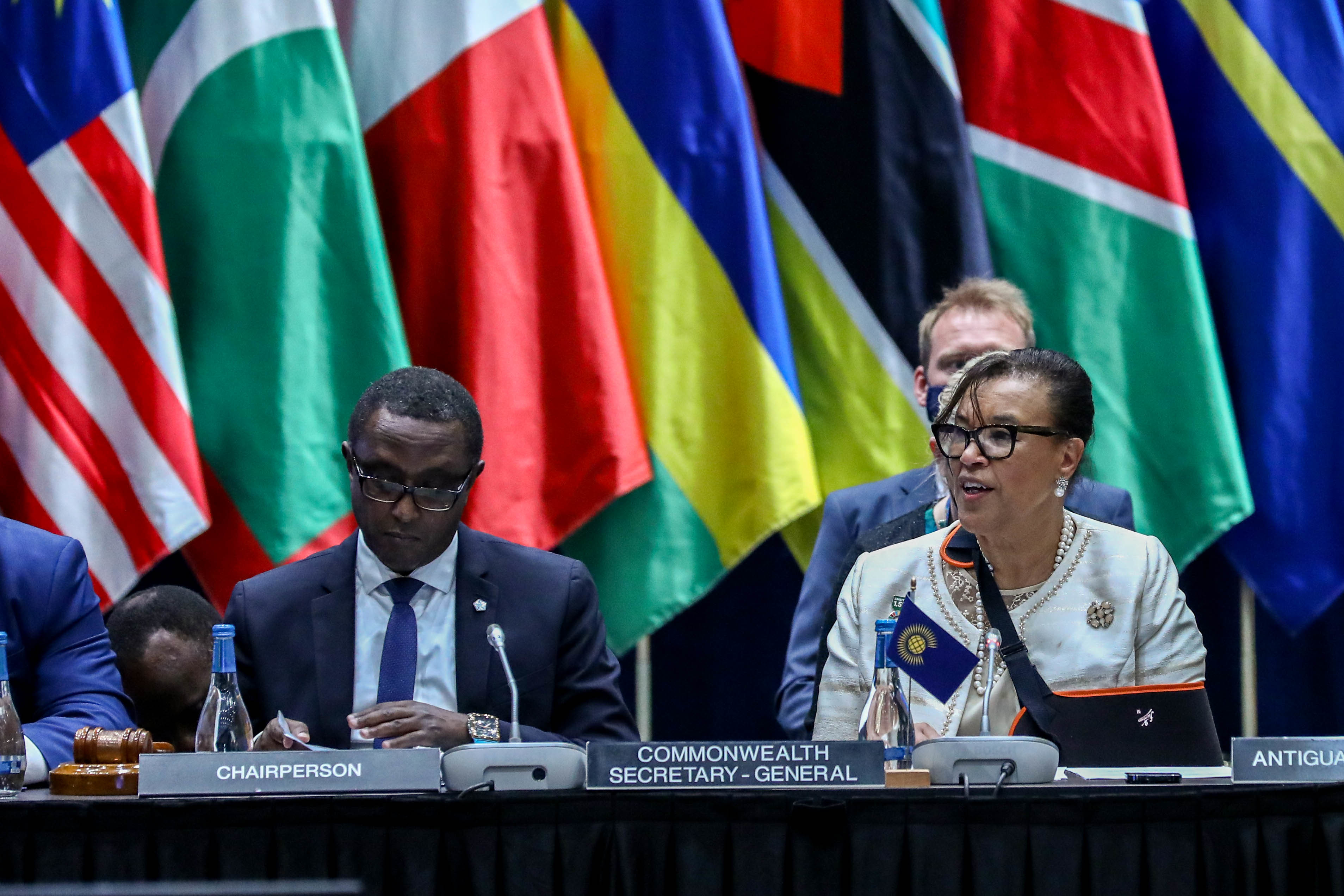

The meeting of ministers that was chaired by Rwanda’s Foreign affairs Minister, Vincent Biruta, on the margins of the Commonwealth Heads of Government Meeting (CHOGM) has called for international action to strengthen support for the Commonwealth’s 32 small states.
Ministers stressed the need to forge partnerships to mobilise global efforts on the issues affecting small states, such as the persistent environmental, health and economic shocks heightened by the COVID-19 pandemic and the economic ramifications of the ongoing conflict in Ukraine.
The containment measures to curb the spread of the Covid-19 pandemic, and the halting of all non-essential travel contributed to the average Commonwealth small states Gross Domestic Product (GDP) contracting by 7.2 per cent, they said.
This is higher than the 3.3 per cent contraction of global GDP, due to the steep contraction in tourism and trade, on which small states heavily rely.
The economic recovery of small states, according to the leaders, now hinges on vaccination rates and distribution, alongside fiscal support and the recovery of international travel and tourism.


The meeting of ministers.
In an effort to collectively help build the resilience of small states, the Commonwealth Secretariat, together with the United Nations has developed the UN-Commonwealth Advocacy Strategy on Small States which was officially launched during CHOGM.
Speaking at the meeting on June 22, Commonwealth Secretary-General, Patricia Scotland QC said: "It is our duty and task to work together to find real solutions now – because every day which passes without urgent action intensifies the challenge. I champion small states everywhere I go because I have the duty and mandate to do so.”
Hon Curtis King, Minister of Education and National Reconciliation, St Vincent and the Grenadines said: "It is critical for small states within the Commonwealth to have access to finance to enable them to confront and mitigate the challenges they face.”
Thirty-two of the world’s 42 small states are Commonwealth members.
They are particularly vulnerable because of their: geographic positioning, strong dependence on trade, limited access to development finance, disproportionate impact of natural disasters and climate change.
During CHOGM, The Commonwealth Secretariat’s ground-breaking collaboration with Cambridge University has unlocked more than $10 million of private financing for small island developing states.


